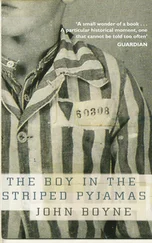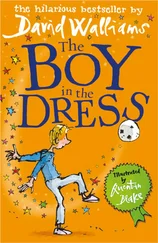Heywood Broun - The Boy Grew Older
Здесь есть возможность читать онлайн «Heywood Broun - The Boy Grew Older» — ознакомительный отрывок электронной книги совершенно бесплатно, а после прочтения отрывка купить полную версию. В некоторых случаях можно слушать аудио, скачать через торрент в формате fb2 и присутствует краткое содержание. Жанр: foreign_prose, foreign_antique, foreign_language, на английском языке. Описание произведения, (предисловие) а так же отзывы посетителей доступны на портале библиотеки ЛибКат.
- Название:The Boy Grew Older
- Автор:
- Жанр:
- Год:неизвестен
- ISBN:нет данных
- Рейтинг книги:3 / 5. Голосов: 1
-
Избранное:Добавить в избранное
- Отзывы:
-
Ваша оценка:
- 60
- 1
- 2
- 3
- 4
- 5
The Boy Grew Older: краткое содержание, описание и аннотация
Предлагаем к чтению аннотацию, описание, краткое содержание или предисловие (зависит от того, что написал сам автор книги «The Boy Grew Older»). Если вы не нашли необходимую информацию о книге — напишите в комментариях, мы постараемся отыскать её.
The Boy Grew Older — читать онлайн ознакомительный отрывок
Ниже представлен текст книги, разбитый по страницам. Система сохранения места последней прочитанной страницы, позволяет с удобством читать онлайн бесплатно книгу «The Boy Grew Older», без необходимости каждый раз заново искать на чём Вы остановились. Поставьте закладку, и сможете в любой момент перейти на страницу, на которой закончили чтение.
Интервал:
Закладка:
Peter was no longer satisfied to be Galahad. He wanted to be Launcelot. And still he was afraid. He found out that Columbus Avenue in Boston was a street largely given over to women and night after night he used to slink about dark corners hoping and dreading that somebody would speak to him. Whenever a "Hello dearie" came to him out of the darkness Peter trembled. "No," he would say, "I'm sorry. I've got a very important engagement. I've got to go right along. I must go right along. Sure, I'll be here at this same time tomorrow night."
Often he would carry on some such dialogue a dozen times in an evening and then one night a woman, more stalwart and audacious than any he had yet encountered, seized him by the arm. "Sonny," she said, "I'm not going to let you waste my time. You're not going any place except with me. Now march along."
Peter marched. That was why he told Maria Algarez that he was not quite a good man himself.
For a time disillusion supplanted turmoil in the mind of Peter. He found that the romanticists were just as fraudulent as the moralists. Don Juan seemed to him as great a fake as Galahad. Besides in the spring the call for baseball candidates came along and Peter surprised the college world by being the only Freshman to win a place on the varsity nine. He pitched the second game against Yale and won by a score of 2 to 0. Life meant something after all. Bending a third strike across the knees of a man with a Y on his chest gave a dignity to existence which it had never before possessed. Peter was done with hot thoughts and cold ones. Unfortunately he was also done with thoughts about examinations. French was his most abject failure, but he did badly enough in everything else to be told that his college days were over.
Still he was bereft of romance for no more than a month. He caught on with the sporting department of the Bulletin early in August and made an almost instantaneous hit. Here again he found satisfaction in the gait and color of life. Women were not rigorously excluded from the scheme of things, but they were not important. He saw them in the dance halls where he went after hours and talked to them and drank with them, but they served merely as minor characters. The talk which animated this existence for Peter was all of the shop. A reporter from San Francisco, named Rusk, suddenly discovered to his amazement and delight that here was a man eager to hear his tales of newspaper work along the waterfront in the days when the coast towns were still unregenerate. Everybody else on the Bulletin was in the habit of groaning loudly whenever Rusk began, "In the old days on the waterfront – ," but Peter listened with the most intense sort of interest to Rusk's entire stock of anecdotes. By and by Rusk had to make them up. He gave himself a boyhood as a jockey and also enlisted fictionally in the Spanish American war. Peter believed everything and liked everything. Four months later Rusk left the Bulletin in order to try his hand at free lancing for the magazines. His failure in that field surprised him. He had come to confuse Peter Neale and the general public.
…
Peter began his spree by going to the Newspaper Club. He found no one in the big room except two old men playing chess. One of them did weather and the other fish on the New York Press. They were not communicative and neither seemed disposed to be drawn into conversation. And so for a time Peter watched the game. He found it impossible to work up any enthusiasm about the issue and departed to practice pool on a table at the other end of the room. Caring nothing about performance, Peter was surprised to discover that the most difficult shots all came off. Nothing was too hard. Even the most fantastically complicated combinations plopped the required ball into a pocket.
Far from being pleased at this Peter grew angry. He felt that Fate was ironically evening up things for him by burdening him with luck and prowess in something which made no difference and withholding its favor in all the important aspects of life. Testing out his theory he picked up a straggler, a man he knew but slightly, who happened to wander into the club at that moment.
"I'll roll you Indian dice," challenged Peter. "A dollar a throw."
Good luck continued to plague him although he knew that its attentions were not honorable! At the end of three quarters of an hour Peter was $85 ahead.
"That's enough," he said with irritation.
"You're not going to quit now that you've got me in the hole," protested his opponent. "Aren't you going to give me a chance to get back?"
"You wouldn't have any chance. If we keep up I'm sure to win hundreds of dollars from you. Nobody can beat me just now. Look here if you don't believe me I'll give you a chance. I'll bet you a hundred dollars to ten on one roll."
"What's the matter with you, Neale?" asked the loser. "Are you soused?"
"Not yet," said Peter. "You're not taking any advantage of me. I tell you I know. I can't lose. Go ahead and roll."
"All right, if you want to throw money away it's not my fault."
He took the leather cup and rolled a pair of sixes. Peter slammed the dice down and four aces and a five danced out.
"No more," said Peter. "It's no use. That's $95 you owe me."
"Would you mind if I held you up on that till next week? I'm sort of busted just now."
"No hurry, anytime'll do."
"Ninety-five, that's right, isn't it? Lend me $5 that'll make it an even hundred. Easier to remember."
Peter gave him the five. He knew that even in his gambling triumphs there would be some catch. Wandering over to the bar alone he had two Martinis and then a Bronx but nothing seemed to happen. Looking at his watch he found that it was still only a little after three and he went up town to Fourteenth Street to a burlesque house. The show was called "Dave Shean's Joy Girls." When Peter came in Shean as a German comedian with a false stomach and a red wig had just volunteered to take the place of the bullfighter played by the straight man.
"Do you think you can kill the bull?" asked the straight man.
"I don't know dot I kills him," said Shean, "but I can throw him."
It annoyed Peter that everybody else in the theatre laughed so loudly.
"Yesterday," continued the real toreador, "I killed four bulls in the arena."
"I had him for breakfast."
"What are you talking about? What did you have for breakfast?"
"Farina."
Peter thought he would go but he waited in the hope that it might get better. Presently Shean and the tall man got into an argument. The serious one of the pair contended that Otto Schmaltz, the character played by Shean, did not have a whole shirt on his back.
"I bet you! I bet you!" shouted Schmaltz dancing about and patting the other man on the cheek. They came close to the footlights and placed huge piles of stage money side by side.
"Now," said the big man, "the bet is you haven't got a whole shirt on your back."
"Ches," replied Schmaltz.
"Why, you poor pusillanimous, transcendental, ossified little shrimp, you," said the big man. "Of course you haven't got a whole shirt on your back. Half of it is on the front."
"Ha! Ha! Ha!" he continued sneeringly and kicked the little man resoundingly while the crowd screamed.
Later Schmaltz bet with somebody else taking the other side of the contention, but again he lost because when it came time for the tag line he grew confused and shouted. "Why, you poor pussaliniment, tramps-on-a-dimple, oysterfied little shrimp, you, half of de back is on the front." And again the fortune of Schmaltz was swept away and again he was kicked.
Possibly the three cocktails had begun to have some effect after all or it may have been something else, but at any rate Peter was no longer merely bored by all these happenings. His sensation was just as unpleasant, but it was acute. Somehow or other the story of Schmaltz and the shirt had made him sad.
Читать дальшеИнтервал:
Закладка:
Похожие книги на «The Boy Grew Older»
Представляем Вашему вниманию похожие книги на «The Boy Grew Older» списком для выбора. Мы отобрали схожую по названию и смыслу литературу в надежде предоставить читателям больше вариантов отыскать новые, интересные, ещё непрочитанные произведения.
Обсуждение, отзывы о книге «The Boy Grew Older» и просто собственные мнения читателей. Оставьте ваши комментарии, напишите, что Вы думаете о произведении, его смысле или главных героях. Укажите что конкретно понравилось, а что нет, и почему Вы так считаете.












